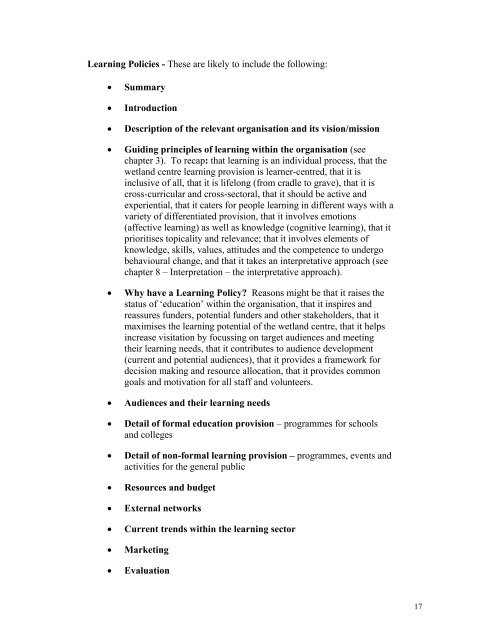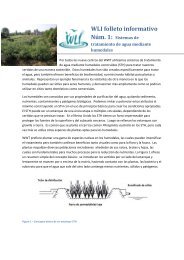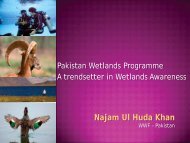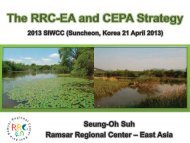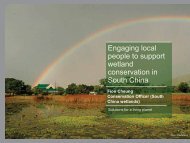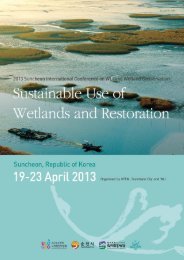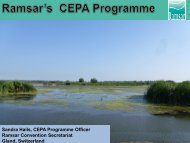developing a wetland centre, English - Wetland Link International
developing a wetland centre, English - Wetland Link International
developing a wetland centre, English - Wetland Link International
You also want an ePaper? Increase the reach of your titles
YUMPU automatically turns print PDFs into web optimized ePapers that Google loves.
Learning Policies - These are likely to include the following:• Summary• Introduction• Description of the relevant organisation and its vision/mission• Guiding principles of learning within the organisation (seechapter 3). To recap: that learning is an individual process, that the<strong>wetland</strong> <strong>centre</strong> learning provision is learner-<strong>centre</strong>d, that it isinclusive of all, that it is lifelong (from cradle to grave), that it iscross-curricular and cross-sectoral, that it should be active andexperiential, that it caters for people learning in different ways with avariety of differentiated provision, that it involves emotions(affective learning) as well as knowledge (cognitive learning), that itprioritises topicality and relevance; that it involves elements ofknowledge, skills, values, attitudes and the competence to undergobehavioural change, and that it takes an interpretative approach (seechapter 8 – Interpretation – the interpretative approach).• Why have a Learning Policy? Reasons might be that it raises thestatus of ‘education’ within the organisation, that it inspires andreassures funders, potential funders and other stakeholders, that itmaximises the learning potential of the <strong>wetland</strong> <strong>centre</strong>, that it helpsincrease visitation by focussing on target audiences and meetingtheir learning needs, that it contributes to audience development(current and potential audiences), that it provides a framework fordecision making and resource allocation, that it provides commongoals and motivation for all staff and volunteers.• Audiences and their learning needs• Detail of formal education provision – programmes for schoolsand colleges• Detail of non-formal learning provision – programmes, events andactivities for the general public• Resources and budget• External networks• Current trends within the learning sector• Marketing• Evaluation17


